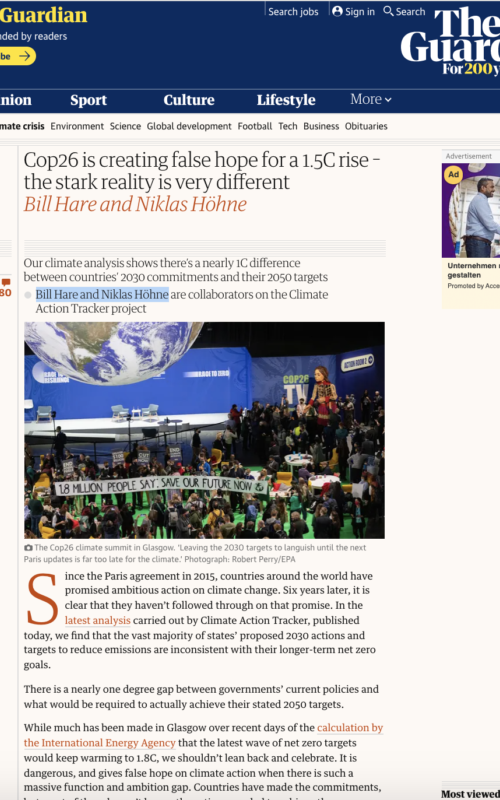Media coverage
Share

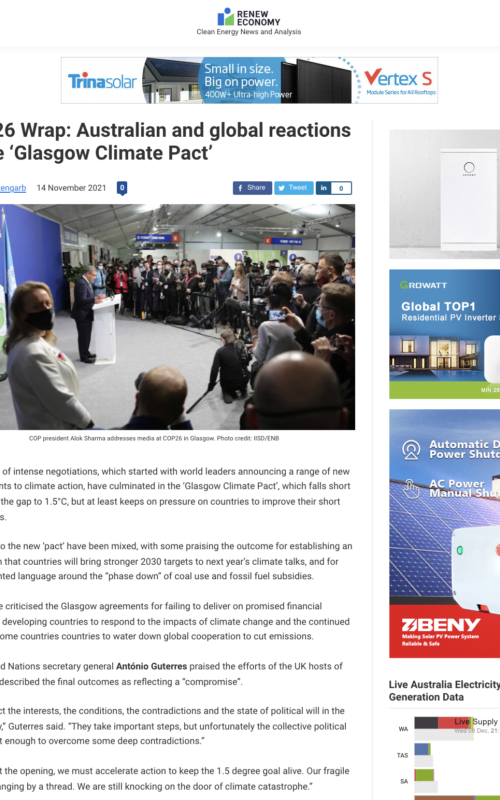
Bill Hare comments on India's last minute changes to the language on coal in the Glasgow Climate Pact.
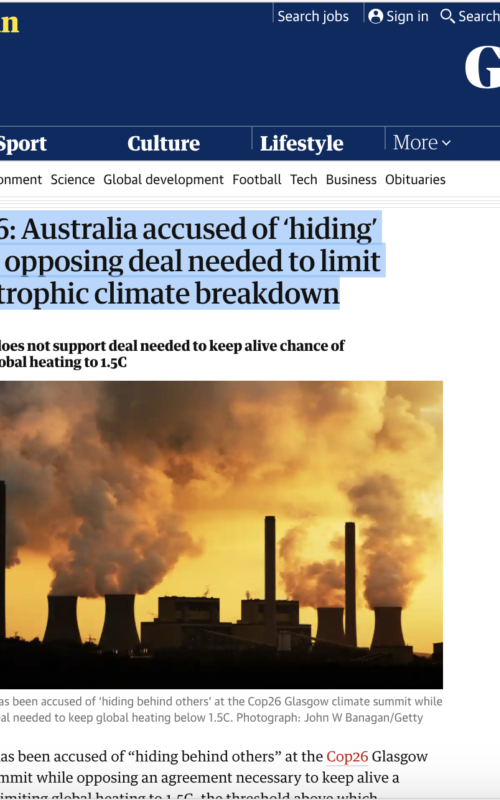
Bill Hare comments on the role Australia has been playing during the COP26 negotiations.
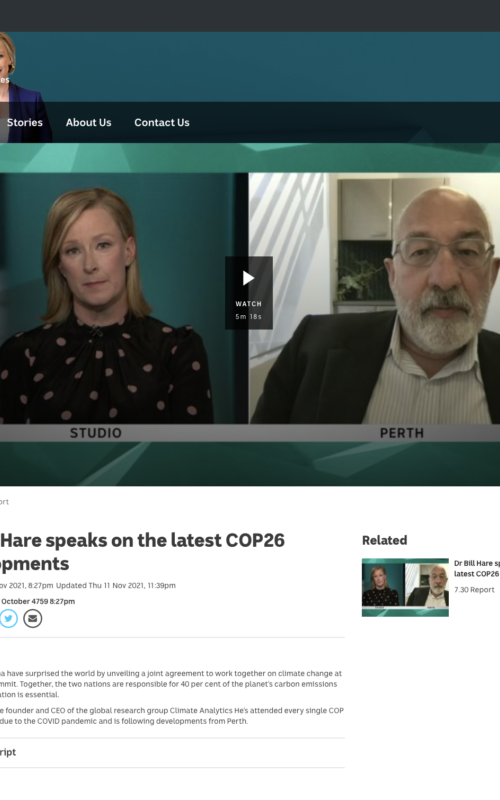
Bill Hare speaks to Leigh Sales on the 7.30 programme about the latest from COP26 and how Australia's lack of climate ambition could come back to bite its economy.
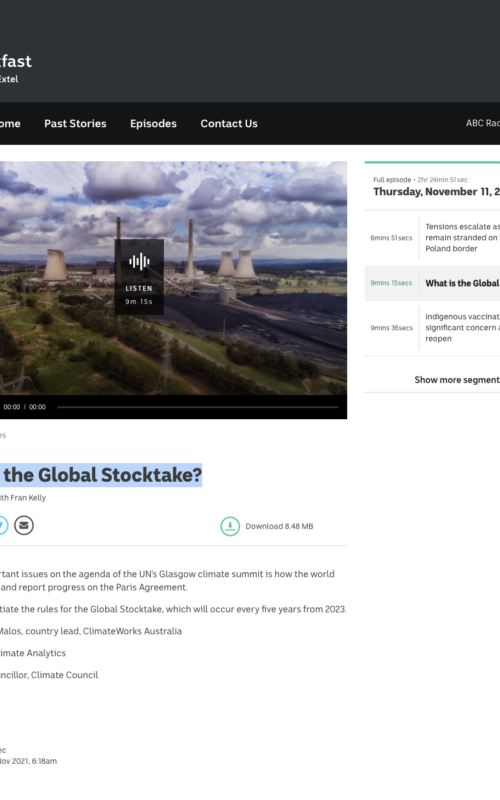
Bill Hare joins Radio National breakfast to discuss what the Global Stocktake is, and why it is being talked about at COP26.

Nandini Das speaks to The Independent about whether India's climate targets are enough to prevent dangerous climate change.




